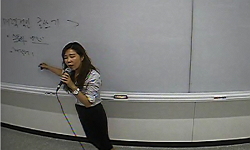Since the founding of the Turkish Republic in 1923, Turkish society has emphasized a single 'Türk' identity on a national level. However, recent socio-political changes have led to a trend of identity transformation in Turkish society. This study aim...
http://chineseinput.net/에서 pinyin(병음)방식으로 중국어를 변환할 수 있습니다.
변환된 중국어를 복사하여 사용하시면 됩니다.
- 中文 을 입력하시려면 zhongwen을 입력하시고 space를누르시면됩니다.
- 北京 을 입력하시려면 beijing을 입력하시고 space를 누르시면 됩니다.

튀르키예 OTT 드라마 <에토스(Bir Başkadır)>에 나타난 현대 터키인의 정치사회적 정체성에 대한 소고 = A Study on the Socio-Political Identity of Contemporary Turks: Focusing on the Turkish OTT Series ETHOS(Bir Başkadır)
한글로보기https://www.riss.kr/link?id=A108729772
- 저자
- 발행기관
- 학술지명
- 권호사항
-
발행연도
2023
-
작성언어
Korean
-
주제어
Türkiye ; Contemporary Turks ; Socio-Political Identity ; ETHOS ; OTT Series ; 튀르키예 ; 현대 터키인 ; 정치사회적 정체성 ; 에토스 ; 드라마
-
등재정보
KCI등재
-
자료형태
학술저널
-
수록면
381-418(38쪽)
- 제공처
-
0
상세조회 -
0
다운로드
부가정보
다국어 초록 (Multilingual Abstract)
Since the founding of the Turkish Republic in 1923, Turkish society has emphasized a single 'Türk' identity on a national level. However, recent socio-political changes have led to a trend of identity transformation in Turkish society. This study aims to explore the socio-political identity of contemporary Turks by examining the Netflix Turkey Original Series <ETHOS (Bir Başkadır)>.
<ETHOS> was selected as the research case because it contains a vivid portrayal of contemporary Turks and Turkish society. The research method used in this study is an analysis of identities expressed on <ETHOS> based on the characters’ narratives, lines, and visual text. However, it is significant to mention that this study did not examine all socio-political identities of contemporary Turks and concentrated only on those depicted in <ETHOS>. Socio-political identities, which are conveyed constantly from the first scene of the series, depict the debate between the progressive and conservative camps formed based on the great principle of the Turkish Republic, "Turkish secularism(Laiklik)“. Most of all, Beyaz Türk(White Turks) ‘Peri’ and Siyah Türk(Black Turks) ‘Meryem’ characters express strong dualism of socio-political identities in Turkish society.
Understanding of dualism begins with the term ‘White Turks’. ‘White Turks’ was coined in the late 1980s to criticize the bourgeois middle class, who envied the West, represented by Europe. It symbolized urbanites, bourgeois elites, Kemalists, Westernists, and white collar. In contrast, Black Turks symbolized non-urban, lower-class, Muslims, traditionalists, and small business owners.
In the <ETHOS>, White Turks ‘Peri’ represents the secular, progressive, central, and elite people. Whereas Black Turks ‘Meryem’ represents the traditional, conservative, surroundings, and the general public. It is obviously a historical and traditional dualism of socio-political identities. However, as the storyline progressed, they developed an unexpected and contemporary socio-political identity that embraced each other.
As the television drama reflects society, the socio-political identity of contemporary Turks was decoded through <ETHOS> in this research. Furthermore, this research leads to a more profound understanding of contemporary Turks and Turkish society, since there was no similar research has been conducted in Korea,
동일학술지(권/호) 다른 논문
-
- 한국외국어대학교 EU연구소
- 강나경
- 2023
- KCI등재
-
고립된 자아에서 연대의 주체로: 플로르벨라 이스팡카의 소네트 주체를 중심으로
- 한국외국어대학교 EU연구소
- 김지은
- 2023
- KCI등재
-
The EU-Korean Strategic partnership and the Indo-Pacific strategies
- 한국외국어대학교 EU연구소
- 이무성
- 2023
- KCI등재
-
디지털 주권과 유럽: 유럽연합(EU) 디지털 정책의 법제화와 시사점
- 한국외국어대학교 EU연구소
- 신의찬
- 2023
- KCI등재





 KCI
KCI KISS
KISS






